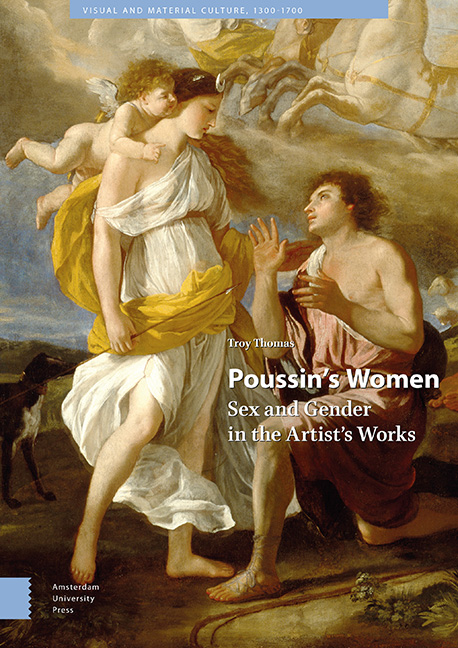Book contents
- Frontmatter
- Contents
- List of Illustrations
- Acknowledgments
- Part I – Violence and Virtue in Poussin’s Representations of Women
- Part II – Poussin’s Women—Cultural and Social Frames
- Part III – Paintings and Drawings
- 1 Predators
- 2 The Lustful—Triumphant, Impulsive, Spying, Conquered
- 3 Lovers—Genuine, Controlling, Unrequited, Jealous
- 4 Killers, Transgressors
- 5 Victims I—Killed, Assaulted
- 6 Victims II—Voiceless, Deceived
- 7 Heroines, Great Ladies
- Conclusion
- Bibliography
- Index
4 - Killers, Transgressors
Published online by Cambridge University Press: 20 November 2020
- Frontmatter
- Contents
- List of Illustrations
- Acknowledgments
- Part I – Violence and Virtue in Poussin’s Representations of Women
- Part II – Poussin’s Women—Cultural and Social Frames
- Part III – Paintings and Drawings
- 1 Predators
- 2 The Lustful—Triumphant, Impulsive, Spying, Conquered
- 3 Lovers—Genuine, Controlling, Unrequited, Jealous
- 4 Killers, Transgressors
- 5 Victims I—Killed, Assaulted
- 6 Victims II—Voiceless, Deceived
- 7 Heroines, Great Ladies
- Conclusion
- Bibliography
- Index
Summary
Abstract
The explosive aggressiveness or peevishness of women and goddesses in several works by Poussin result in tragic deaths. Works depicting killers in this chapter include Medea Killing her Children, Diana Killing Acteon, Landscape with Diana and Orion, and Diana Slaying Chione. Transgressors who suffer transformation or death include Myrrha in the Birth of Adonis; Aglauros in Mercury, Herse, & Aglauros, and Sapphira in the Death of Sapphira.
Keywords: Killers, Transgressors, Revenge, Power, Jealousy
The explosive aggression and peevishness of women and goddesses in several works by Poussin result in tragic deaths. His two drawings of Medea Killing her Children graphically illustrate how a mother takes horrifying revenge on a husband who abandoned her. The goddess Diana was quick to kill those whom she regarded as offending her, often basing her actions on unjustifiable pretexts. Diana Killing Acteon depicts the death of the young hunter at the hands of the goddess for the slight of observing her while bathing. In Landscape with Diana and Orion, the goddess kills the hunter Orion, according to one version of the story, on a dare from her brother, Apollo, and to protect her virginity. Diana Slaying Chione shows the goddess killing a mortal woman by shooting her through the tongue for boasting that she was the more beautiful. Transgressors who suffer transformation or death in works by Poussin include Myrrha, who is changed into a tree by the gods for her crime of incest in the Birth of Adonis, and Sapphira, who in the Death of Sapphira is struck dead by God for hiding money intended for the Church. Another transgressor appears in Poussin's Mercury, Herse, & Aglauros (c. 1627, École Nationale Supérieure des Beaux-Arts, Paris, Fig. 4.9), a painting not included for detailed study in this chapter. This canvas shows the sad story of Aglauros, who, through jealousy, had tried to bar Mercury's way to her sister Herse, whom the god loved. For her transgressions of jealousy of her sister, greed, and desire for Mercury, Aglauros was turned to stone by the god. Poussin's picture seems to warn women not to open secrets through longing and particularly through the gaze, which is a male prerogative.
- Type
- Chapter
- Information
- Poussin's WomenSex and Gender in the Artist's Works, pp. 205 - 226Publisher: Amsterdam University PressPrint publication year: 2020



